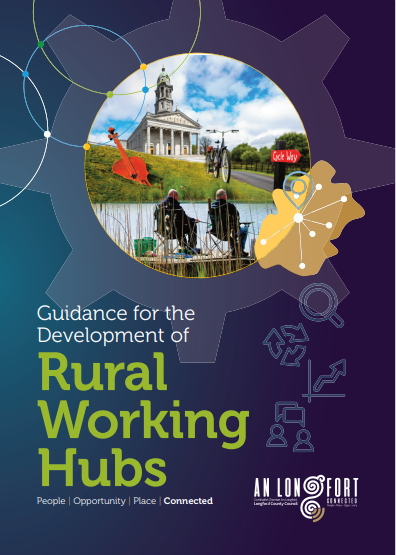
Date: 10 Dec 2021
Remote working during the Covid pandemic had some positive environmental benefits that included less emissions from commuter travel.
Though it cannot overcome climate change on its own, remote working could help reduce people carbon footprint along with co-benefits of positive opportunities for employers, employees and the communities in which they are based.
Longford County Council has identified the provision of remote working hubs as a key component in creating sustainable and vibrant rural community in their county.
Through the help of work completed by the Western Development Commission, Longford County Council adopted a cross departmental approach to the development of rural working hubs, identifying the Regeneration Department as the primary contact in the development of hubs.
Longford County Council is the first council in Ireland to develop a Rural Working Hub Strategy that suits the needs of the local community and is aimed at providing workers travelling outside of the county with an opportunity to live and work within their local communities.
The project emerged through Longford’s involvement in a European-wide project with partners in Finland on rural working hubs.
To date, the initiative is developing Rural Working Hubs in three locations in Longford: Edgeworthstown, Abbeyshrule and Ardagh with facilities that allow employees to work closer to home; provide a base for entrepreneurs and start-ups; contribute towards a low carbon future and help redevelop Longford's towns and villages under a digital strategy.
Longford County Council has developed an information booklet to assist communities interested in developing rural working hubs within their local area. The guide sets out the key considerations to be taken into account in the development of rural working hubs along with very practical and useful information on the requirements in the development and running of a successful rural working hub.
Further information can be found on the Longford County Council website.